It is debatable as to when Nantwich in Cheshire was first mentioned . But Cheshire's salt history played a great part in its development. Nantwich salt was used by the Roman forts at Chester and Stoke. Salt has been used in the production of Cheshire cheese for decades. "Nant" comes from the Welsh for brook or stream. Wich, wick and wych are names used for farm settlements by water. It is a lovely, sleepy little town and it was only on a day out there that I discovered it has two important events in its history. The Great Fire of Nantwich in 1583 and an English civil war battle. The Battle of Nantwich. 1644.

Nantwich Cheshire; The Great Fire and The English Civil War
by Veronica
A lovely day out in beautiful, historic Cheshire sparked my interest because this quaint town has two major events in its history. Fire and War
Nantwich location, NW of Stoke on Trent
The Great Fire of Nantwich
I first looked into the Fire of Nantwich when someone asked me to do a history/ drama / literacy workshop on it for their primary school.
There are several first hand accounts of the fire so it not difficult to see how events unfolded. Nantwich of course was full of closely built timber framed traditional buildings. The town museum has a good display about it. The town was unfortunate indeed. The fire was followed by famine in 1597 and a plague in 1601.
The fire started when brewer Nicholas Brown was brewing ale and set his kitchen on fire. The building materials made the spread of fire rapid and inevitable with so much wood in the building and a thatched roof. It was exacerbated by a strong westerly wind. The fire spread up High Street, through the markets to Beam Street and Pepper Street. It travelled along Pillory Street, and Hospital Street until it reached nearby Briar Hall.
It burnt 600 buildings in 15 hours.
The people's efforts to douse the fire were useless. When local women heard that the pub landlord had let his bears loose they stopped bringing buckets of water from the river out of fear of the bears. Bear baiting was a form of entertainment at the time. But fire and bears were a terrifying prospect.
A plaque in the town says “almost all buildings were destroyed” but only buildings on one side of the River Weaver were actually destroyed. Queen Elizabeth 1st sent £1000 to assist the rebuilding of the town. Many of the buildings today are the rebuilds from after the Fire of Nantwich.
Buildings such as these on the edge of town were not damaged by the fire which affected the town centre.
Battle of Nantwich
The Battle of Nantwich was in the Civil War , between the Royalists and the Parliamentarians, on 25 January 1644. The Royalists besieged Nantwich, and the Parliamentarians led an army to relieve the town. As they approached, the river thawed and the Royalist cavalry were separated from their troops infantry and artillery by the water resulting in a Parliamentarian victory. The Battle of Nantwich battlefields below are much quieter today but still retain that ethereal battlefield atmosphere.
The church above was closest to the battlefield and the bodies of the dead and wounded were brought here. This below is part of the display from the town museum.
Today Nantwich is more peaceful. It has a beautiful canal running through it. The Stocks still stand in the village and are a symbol of past punishment in Cheshire. The church in the centre of town is a cruciform church and very peaceful.
You wouldn't know today, walking round that Nantwich had such a past.
You might also like
Cheadle Hulme History Walk, CheshireCheadle Hulme ( Pronounced Hyoom ) is my village and 7 years ago I wrote a Ch...
Little Moreton Hall; It shouldn't be standing upNestled in the stunning Cheshire countryside, Little Moreton Hall shouldn't s...
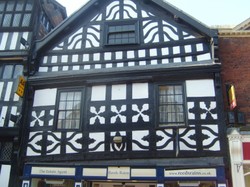

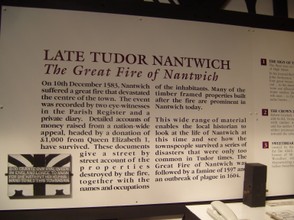
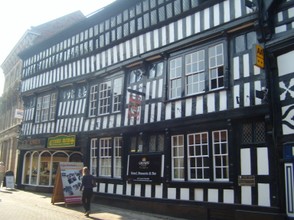
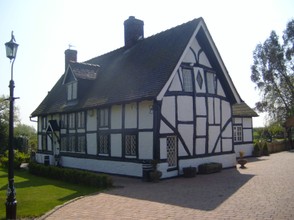
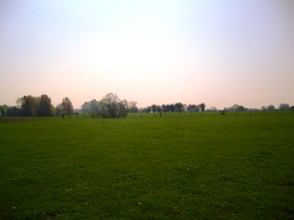
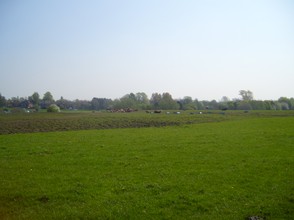
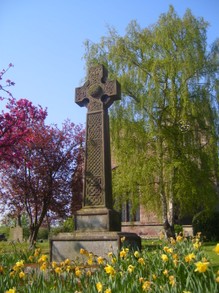
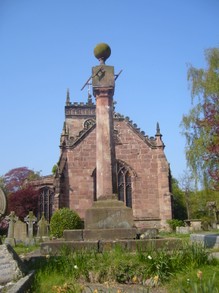
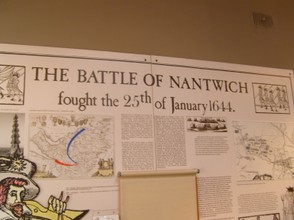
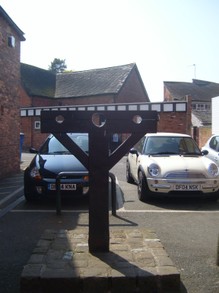
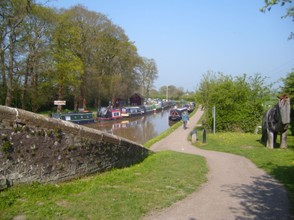
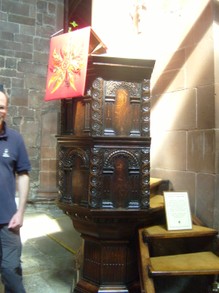
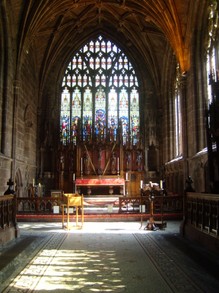

 Blarney Castle and Gardens, County Corkon 06/01/2023
Blarney Castle and Gardens, County Corkon 06/01/2023
 An Cóbh, Corcaigh, Eireon 05/29/2023
An Cóbh, Corcaigh, Eireon 05/29/2023
 Dublin ; The Book of Kellson 04/04/2023
Dublin ; The Book of Kellson 04/04/2023
 The Bee Tree Community CIC;- an online support communityon 08/24/2022
The Bee Tree Community CIC;- an online support communityon 08/24/2022
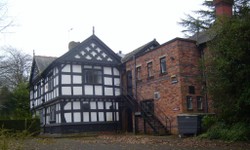
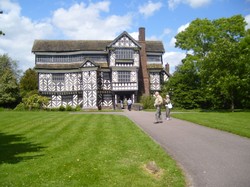
Comments
The fifth paragraph to the first subheading, The great fire of Nantwich, advises us that "local women heard that the pub landlord had let his bears loose."
Is it known from where the bears were staying and let loose?
Anecdotal evidence suggests that the bears were let loose and ran rampage in fear through the town. There are no bears in England living in the wild so I can only assume that they died in the fire which raged for about 20 days.
Veronica, Does anecdotal or recorded history tell what happened to the bears?
The salt lakes originated in the Triassic period when the area was part of the continent of Pangaea, whose extreme continental climate simply dessicated the land with extreme summer heat.The exploitation of the salt began with the Britons, but the Romans put it on a much larger scale, so it is believed. As there was a legionary fortress at Chester, now the county town of Cheshire, after which Cheshire is named, they were in a good position to exploit the salt resources.
Indeed. Cheshire was originally a large salt lake/ marsh and as the water evaporated, salt remained.
The reason that there was a salty stream there at one time is that Cheshire has deep reserves of salt underlying some parts of it. The Cheshire salt mines are still operative and consist of huge underground caverns.
PS
The English Civil War was 1642 to 1651 and King Charles was beheaded in 1649. Thus ended the monarchy which was replaced by a Republican Commonwealth under Oliver Cromwell. The Monarchy was restored in 1660.
Cheshire has always been Welsh border country . I am in the east of Cheshire and am still only 40 miles from the Welsh Border.
The name Nantwich reveals the mixed traditions of the area. Nant is a Welsh word for a salty stream, and wich is a local form of the Anglo-Saxon Latin-derivative wick, an enclosure for primarily economic purposes, maybe a sheep or dairy farm.
Why a Welsh term in England? Be aware that Cheshire is adjacent to the Welsh border and that Welsh was spoken across Western England,in parts even until the eighteenth century. There are still some English in the Welsh border regions who regard themselves as Welsh. Much of Western England was Wales until the kingdoms of Northumbria and Mercia conquered it in the seventh century. The Nantwich region was taken in 626-7 by the Northumbrians, but later taken by the Mercians of the midlands.
Thank you. Maybe it is that we don't appreciate what we have here. I love Cheshire and the beauties of our countryside. Frank is very good on all things English and Irish . Just ask us if you are curious. It is interesting; I was always very curious about Ireland and then discovered I am mainly Irish by ethnicity. I think we have a subconscious yearning back to our roots. Maybe that accounts or your curiosity.